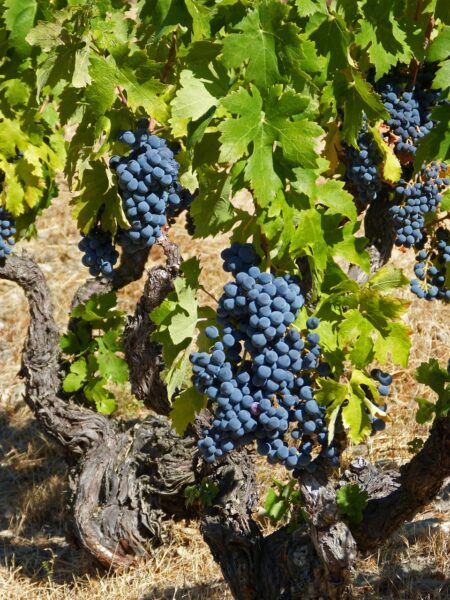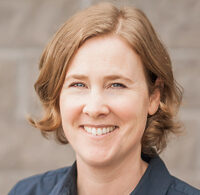“Yes, I am the vine; you are the branches. Those who remain in me, and I in them, will produce much fruit. For apart from me you can do nothing.” (John 15:5, NLT)
As I was considering what to write about this month, I thought of this season after Easter. It’s a time of joy and celebration as we remember the resurrection of Jesus. It’s also the time before Pentecost, when the Holy Spirit was given to the followers of Jesus (see Acts 2). The truth of what Jesus had told them before his death was now a reality: “You will grieve, but your grief will suddenly turn to wonderful joy.” (John 16:20, NLT)
Jesus appeared for 40 days after his resurrection before going up to Heaven. We get a few glimpses of what that time was like but it was certainly different from how the disciples had experienced him before. He no longer stays with them continually but pops up in unexpected places and times. They need to start learning a new way of staying connected with him. How were they to “remain” in Jesus now that he was going back to Heaven? The Spirit’s arrival at Pentecost gave them one clue. Now they each had God’s presence in them, no matter where they went.
As followers of Jesus two millennia later, we still experience the presence of the Holy Spirit in our lives – God in us teaching us and helping us on this journey of becoming his new creations. But we also need to remain in Christ. We are not passive in this relationship with God but need to be active participants.

It seems quite essential that we do this to be fruitful, to live in a way that is producing what God wants in our lives. I like how the Message version puts it: “I am the Vine, you are the branches. When you’re joined with me and I with you, the relation intimate and organic, the harvest is sure to be abundant. Separated, you can’t produce a thing” (John 15:5, MSG).
We have an ongoing relationship with Jesus that is to impact our lives. But I wonder how many of us are actually experiencing this kind of intimate relationship with him? What is it supposed to look like? How do we know if we are staying connected or not?
I think of Brother Lawrence, a French lay brother who lived in the seventeenth century. He wasn’t educated enough to become a priest so he ended up working in the kitchen throughout his life at the monastery. But it was among the potato peelings and dirty dishes that he learned how to experience a relationship with God that was so transformational many came to talk with him about it so they could understand and experience it themselves. He had learned the secret of remaining in Jesus.
What I appreciate about Brother Lawrence is that he wasn’t a stickler for a specific regime of spiritual exercises, although I’m sure he practiced many of them. He understood that it’s not about the exercises themselves but about pursuing intimacy with God. He said that “the shortest way to God was to go straight to Him by a continual exercise of love and doing everything for His sake.”
So whether it’s certain types of prayers, reading Scripture, or other spiritual disciplines, it doesn’t matter how well or poorly we practice them as much as how connected we are in loving union to God. And this, as Brother Lawrence says, is about having “a heart resolutely determined to apply itself to nothing but Him, do nothing but for His sake, and to love Him only.”
The Apostle Paul says something similar in 1 Corinthians 13, but from the negative. He tells us that we can do all kinds of spectacular and wonderful things but if they are done without love, they are nothing. We cannot be fruitful without love. Love is the key ingredient to experiencing God and sharing him with others.
I also think of Julian of Norwich, an anchoress who lived in a small cell off of a church in the 14th century. She spent much of her life in prayer (she certainly wasn’t going anywhere!). She survived a life-threatening illness and was given visions or “showings” from God about Jesus and his death and love for humanity. She spent several decades reflecting and writing on these.
At the end of her writings, Julian asks what the Holy One meant by all this. “Would you like to know?” comes the response. “Know it well: love was his meaning. Who revealed this to you? Love. What did he reveal to you? Love. Why did he reveal it to you? For love. Stay with this and you will know more of the same. You will never know anything but love, without end.
For both Brother Lawrence and Julian of Norwich, remaining in Jesus meant seeking and experiencing his love for them. It meant having a single-mindedness of pursuing this relationship and allowing it to impact their whole lives. Even though we may not live as a monk or anchoress, Jesus’ call to remain in him is still for us.
So how will I “remain” in Jesus? That might look different in practice from person to person but I think the similarity is in the results – experiencing his love, loving him more deeply, and becoming more like Jesus in our unique selves. It looks like being more loving, forgiving and asking for forgiveness, more patience, being more willing to suffer for the sake of Jesus or others, and being more in love with God. It looks like a life that can be explained no other way than that Christ is at the center.
Brother Lawrence describes practicing God’s presence as doing everything “thoughtfully and mindfully, without impulsiveness or rashness, which indicate an undisciplined mind. We must go about our daily activities quietly, calmly, and lovingly, asking Him to bless the work of our hands. By keeping our heart and mind fixed on God, we shall bruise the head of the evil one and cast his weapons to the ground.”
Do we have a thirst for this? A hunger for it? If not, ask God to give you the desire to place him above all things. Look for ways to be intentional about this. He is patient with us, willing to go the distance to see us come into full loving union with him. This is the “wonderful joy” we can now experience this side of the resurrection of Jesus.
1 Brother Lawrence, The Practice of the Presence of God in Modern English, Translated by Marshall Davis, 2013, pg. 18.
2 Ibid., pg 22.
3 Julian of Norwich: The Showings: A contemporary translation, by Mirabai Starr, pg. xvi.

Sarah Cogswell
Pastor of Spiritual Formation & CareSarah’s passion is to see others growing in their faith with Jesus and living it out in their homes, neighborhoods, and schools, as well as being deeply connected with their church family.
To contact Sarah you can email her at sarah@onthejourney.ca.
